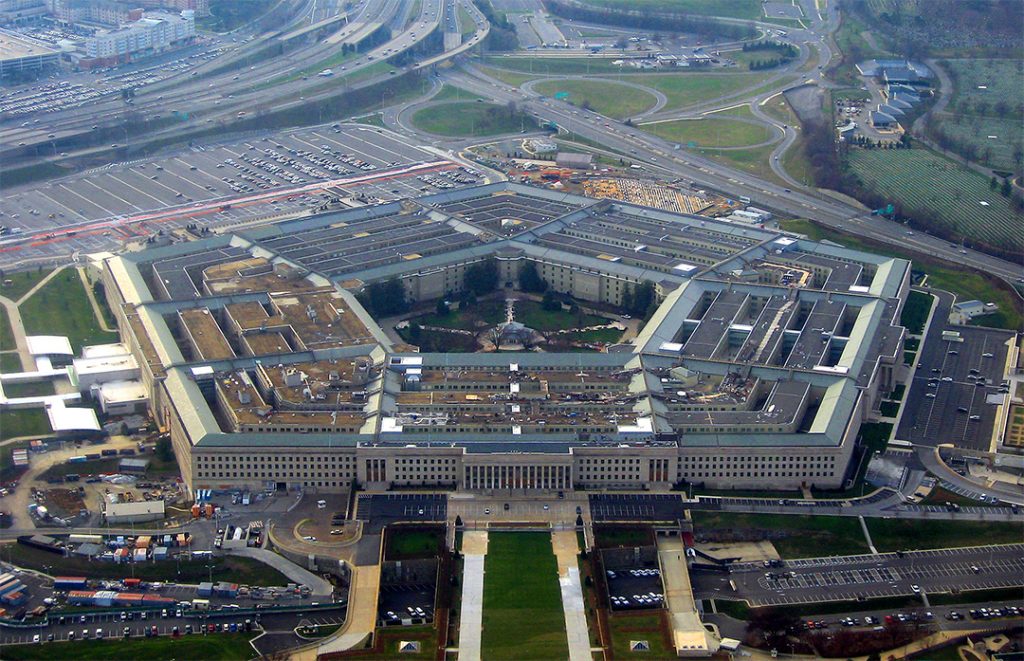In December, the US House of Representatives approved a gargantuan military budget of more than $778 billion, a significant increase over what the Biden administration requested and more than $35 billion more than was approved in last year’s budget. The new spending comes despite the US military withdrawal from Afghanistan and the President’s statement that the United States has turned the page on “forever wars.”
When combined with the annual costs of veterans’ benefits and other defense related expenses, total US military spending is more than one trillion dollars annually.
Budgets are moral documents, expressing a country’s priorities.
Congressional approval of this year’s increase in arms spending comes as some in Washington claim our nation cannot afford to broaden Medicare, extend the child tax credit, expand family and medical leave and support other programs for people in need. As Representative Barbara Lee, a Democrat from California, tweeted after voting no on the budget, “Don’t ever tell me we can’t afford to invest in our communities when we just approved $778b for the Pentagon. Shameful to say the least.”
Last year I wrote in this space that national budgets are moral documents, expressing a country’s priorities and what is considered important or not. By that standard, the new budget is a failure. It is a “theft from the poor,” to use the famous words of President Dwight D. Eisenhower in his historic 1961 address warning about the costs and consequences of the “disastrous rise of misplaced power” from the military industrial complex. That interlocking iron triangle of corporate, military and congressional power has become a permanent fixture in US politics, exerting significant influence over Democrats and Republicans alike. Its many advocates press constantly for larger arms budgets and emphasize military rather than diplomatic and peacebuilding solutions to global challenges.
The new Pentagon budget reflects warped national priorities that direct vast sums to preparations for war rather than social, environmental and public health needs. More than half of all annual US government discretionary spending goes to the military, far outpacing expenditures for infrastructure, public health, and other social priorities.
The Pentagon budget operates as a mechanism for transferring vast amounts of federal government funding to wealthy arms corporations. Research by William Hartung for the Cost of War project shows that one-quarter to one-third of the military budget goes to just five major arms contractors. In fiscal year 2020, the Lockheed Martin Corporation received $75 billion in federal contracts. That amount was one and half times the entire budget of the State Department and USAID.
Focus on China
A major driver of rising military budgets is the shift in US national security strategy toward preparing for military confrontation with China. The new funding is being used for the procurement of ships, planes and missiles for operations along the coast of China and for potential military strikes into the Chinese mainland or war in Taiwan. The consequences of an actual armed conflict with China would be disastrous.
Most of the increase in this year’s Pentagon budget comes from an amendment that added $23.9 billion for new “battleforce ships” for the Navy and for more combat aircraft. The funding “ensures we have the resources necessary to counter the growing threat from China and other adversaries,” stated Representative Mike Rogers of Alabama, a sponsor of the amendment and ranking Republican in the House Armed Services Committee.
After decades of futile wars in Afghanistan and Iraq, the US military industrial establishment has pivoted back to an era of great-power competition. The result has been a continuing upward spiral in weapons spending and preparation for a new and more deadly “forever war” of military confrontation with China and Russia. Meanwhile, we continue to neglect the needs of the poor and divert resources from addressing urgent environmental and public health challenges.
Shameful indeed.
David Cortright is director of the Global Policy Initiative; special advisor for policy studies; and professor emeritus of the practice in the Keough School of Global Affairs at the University of Notre Dame.
This article is part of a series of blog posts published by the Keough School of Global Affairs. Dignity and Development provides in-depth analysis of global challenges through the lens of integral human development.
Photo: The Pentagon” by David B. Gleason is licensed under CC BY-SA 2.0.


